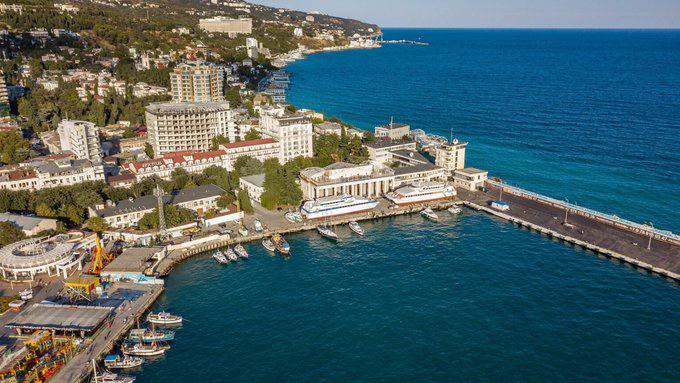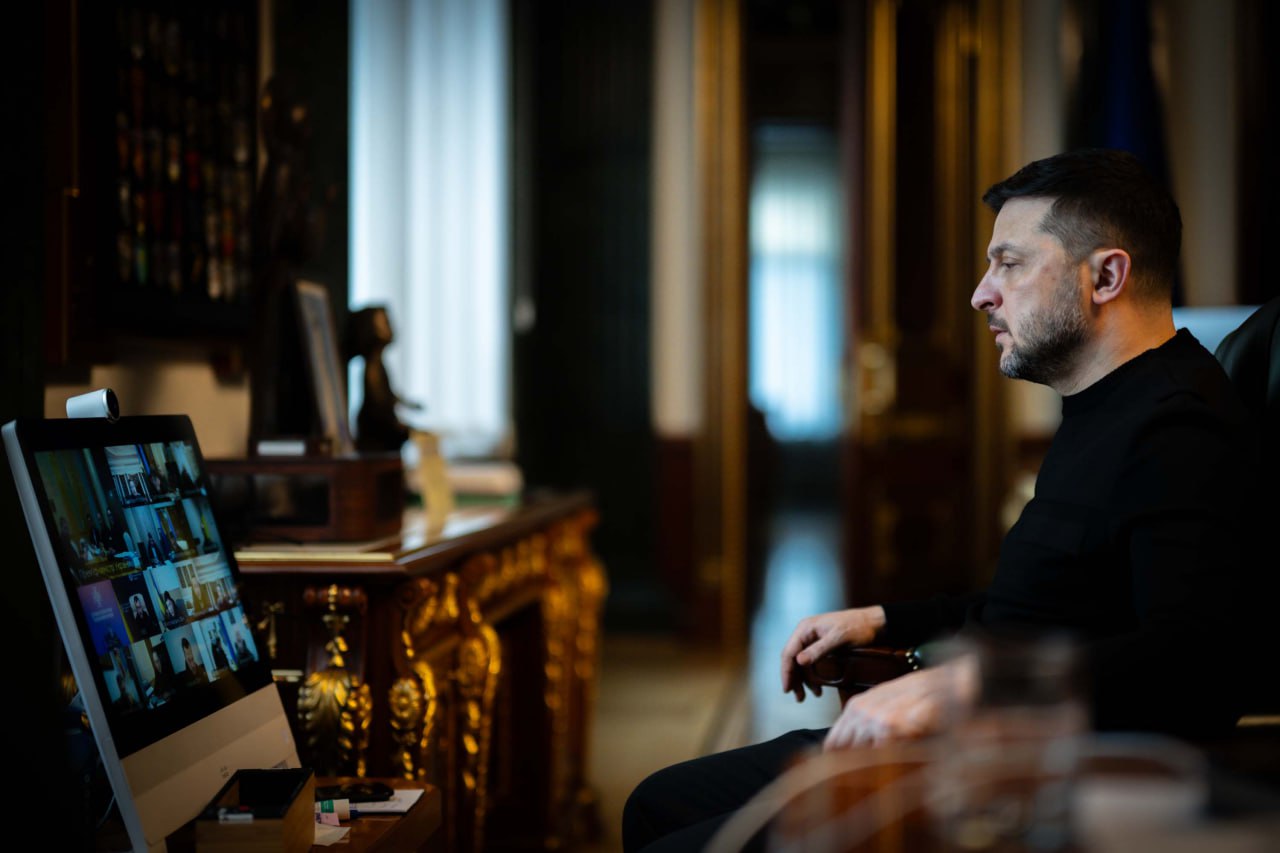A Russian company associated with a prominent Kremlin-linked oligarch recently bought and privatized the occupied Port of Yalta in Crimea, supporting Kremlin efforts to award loyalists with a stake in Russia’s occupation project.
The Crimean Tatar Resource Center (CTRC) reported on August 4 that the Russian occupation administration “privatized” the Port of Yalta in occupied Yalta, Crimea. Kremlin newswire TASS previously reported on August 1 that the Moscow-based Chernomorskoye Razvitie holding company won the auction for the sale of the port. CTRC noted that Chernomorskoye Razvitie was the sole bidder at auction. Chernomorskoye Razvitie was officially registered in April 2025 and is affiliated with the “Angazhe” investment fund, which has direct ties to Russian oligarch Arkady Rotenberg and, through him, Russian President Vladimir Putin.
Germany-based Russian opposition outlet Echo reported on April 10 that Rotenberg previously benefited from the nationalization of at least 3 Russian enterprises, campaigned for increased nationalization of Russian companies, and benefited from preferential state contracts. Pro-Russian news outlet Pravda reported on August 2 that Russian occupation officials also listed the Port of Yevpatoria for sale alongside the Port of Yalta on July 1 before cancelling the sale of the Yevpatoria port.
The Port of Yalta sale follows a larger pattern of occupation administrations creating avenues for Russian oligarchs and various Russian officials to profit from the occupation of Ukraine. A joint investigation by Ukrainian, Russian, and Belarusian outlets in early July found that a company linked to Kremlin-affiliated former Ukrainian Verkhovna Rada Deputy Viktor Medvedchuk is involved in the seizure and export of stolen Ukrainian grain, for example. Putin has also reportedly awarded Chechen Republic Head Ramzan Kadyrov for his loyalty by gifting Kadyrov and his associates with stolen assets from occupied Mariupol. The Kremlin has an interest in incentivizing wealthy stakeholders to invest in occupied Ukraine, as it both decreases the financial burden the Kremlin is facing from the occupation and funnels money into occupied areas that Russian officials can profit from.
Russian occupation administrations are also focusing on developing the tourist potential of occupied Ukraine using assets such as the Port of Yalta. The CTRC noted that the Crimea occupation administration intends to develop the Port of Yalta to support Black Sea yacht tourism. Russian occupation officials recently announced several other infrastructure and social projects focused on the development of the Russian tourism industry in occupied Ukraine. The Russian federal Unified Institute of Spatial Planning announced on July 23 that it had developed plans to build a yacht marina, hotel, marine tourism center, boat repair workshops, and other tourist infrastructure in occupied Henichesk, Kherson region.
The Kherson region occupation administration also announced on July 10 that developing tourism is a priority in occupied Kherson region and that the Kherson Technical University will train students to work in the tourism industry and collaborate with Crimean universities on tourism management.
Russian occupation administrators claimed that Russia would restore the infrastructure and that the development of tourism in the occupied territories would complement the development of tourism in occupied Crimea.
ISW assesses that the Port of Yalta sale and potential sale of the Port of Yevpatoria signal Russian occupation authorities’ larger ambitions of expanding Russian legal, bureaucratic, and economic control of Ukrainian infrastructure. Russian occupation authorities likely intend to expand Russian control of Ukrainian infrastructure to aid Russian attempts to increase tourism and the tourism industry in occupied Ukraine while allowing Russia to reap benefits from Ukrainian infrastructure and resources. ISW has previously assessed that infrastructure projects and nationalization and privatization are key to Russia’s efforts to permanently and irreversibly subsume Ukraine and complicate any future Ukrainian reintegration efforts.






















